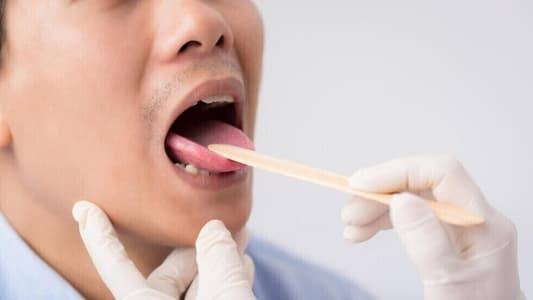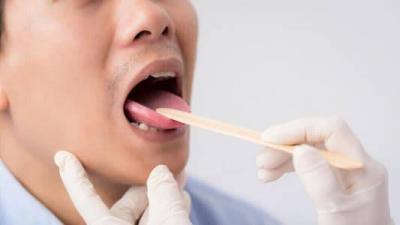The term mouth cancer refers to cancer that forms in any part of the mouth (oral cavity). It may appear on the lips, gums, tongue, or floor of the mouth. Mouth cancer can result from many causes. According to Nigel Carter, the CEO of the Oral Health Foundation, traditional causes of mouth cancer include smoking and excessive alcohol consumption, and the disease is also linked to "emerging risk factors, such as the human papillomavirus (HPV)." He pointed out that the devastating impact that mouth cancer can have on a person's life can "change the way a patient speaks, make eating and drinking more difficult, and often alter the physical appearance of the person."
Carter urges everyone to be "more aware of mouth cancer by being able to recognize the early warning signs of cancer and being aware of common causes. Most importantly, if you notice anything unusual, please do not delay and seek help from a general practitioner or dentist."
The National Health Service (NHS) explains that mouth cancer occurs when a tumor develops on the surface of the tongue or in the inner lining of the cheeks, the roof of the mouth, the lips, or the gums. Tumors may also develop, less commonly, on the salivary glands, tonsils, and pharynx, which is the part of the throat that connects the mouth to the windpipe.
The main symptoms of mouth cancer include:
- Painful mouth sores that do not heal even after weeks
- Persistent lumps in the mouth or neck
- Loosening teeth or cavities that do not heal after extraction
- Numbness in the lip or tongue
- White or red patches forming on the lining of the mouth or tongue
- Changes in speech, such as a sudden development of a lisp (a speech defect where a person mispronounces sibilant sounds)
If someone experiences any of these symptoms and they do not disappear after three weeks, it is advised to visit a general practitioner or dentist, especially if the patient is a smoker or consumes alcohol regularly, as both are believed to increase the risk.
Mouth cancer is treated in three ways: by surgical removal of cancerous cells, radiation therapy, or chemotherapy. These methods may be combined to ensure that cancer does not return and to maintain oral functions.
As preventive measures, the NHS recommends reducing tobacco and alcohol intake and maintaining a healthy, balanced diet that includes fresh vegetables, especially tomatoes, as well as citrus fruits, olive oil, and fish. Regular dental check-ups are also recommended to ensure that any potential symptoms are detected early.




